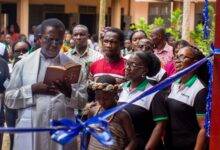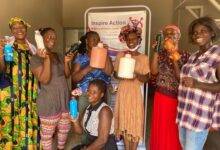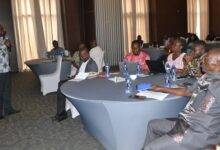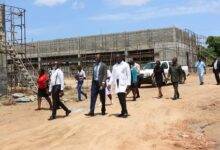
The Kwame Nkrumah University of Science and Technology (KNUST) and Incas Diagnostics, a diagnostic company in Kumasi, have developed an optimised Rapid Diagnostic Tests (RDT) for COVID-19 testing.
The serological tests use a finger-prick blood and in lateral flow format, similar to blood glucose test or home pregnancy test and detects two different antibodies produced by the body to fight off the COVID-19 infection after about seven days.
Additionally, the RDT have the capability to identify antibodies in persons who have been exposed to the virus but are not showing any symptoms (asymptomatic) or recovered from infection.
A statement issued by University Relations Officer, KNUST, Dr Daniel Norris Bekoe in Accra on Monday said, the innovation was aimed at augmenting the current COVID-19 testing regime in the country.
It said the development of the RDT was in line with two of the country’s objectives in the fight against COVID-19; contain the spread of the virus, inspire the expansion of our domestic capability and deepen our self-reliance.
According to the statement, current molecular diagnostics; Polymerase Chain Reaction (PCR) which is being used in the country detects parts of the viral genome very early in infection test at least 48 hours from testing to results; potentially delaying contact tracing and other efforts.
The PCR tests, it said were also, unable to identify people who have been infected (symptomatic or asymptomatic) and recovered.
“However, KNUST/Incas RDTdetects asymptomatic cases, enables decentralised testing to be done anywhere without requiring any equipment,” the statement said.
According to the statement, the device also, required little technical training for those performing the test which took 1 to 20 minutes to perform and would enable those tested to know their results in a shorter time to enable decision making in real time by health authorities.
A key use of this RDT, it said, would be for mass testing of the population to identify infected virus and provide key data for efforts to model the course of the pandemic and also, enhance contact tracing.
“By indicating how much of the population is already likely immune because of mild infections, antibody data can offer a key to how fast the virus will continue to spread,” it said.
In the future, the statement said the test could also, help identify recovered patients who could then donate their SARS-CoV-2 antibody-rich serum to help treat critically ill patients as is being done in some countries.
It noted that KNUST and Incas Diagnostics throughout the development have been in touch with the Ministry of Health and the National Covid-19 Response Team and were currently engaging the Food and Drug Authority for the necessary regulatory framework.
The statement commended all scientists and other stakeholders who have contributed to the achievement.
BY TIMES REPORTER






